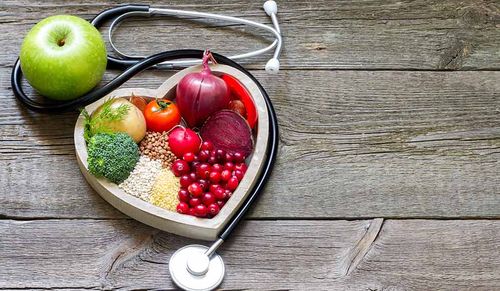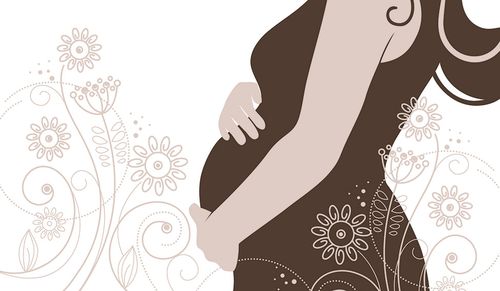Then, eat 10 portions of fruits and veggies every day.
According to a British study published in the International Journal of Epidemiology, up to 7.8 million premature deaths worldwide could be avoided yearly if people ate 10 daily servings of fruits and vegetables. The benefits come through lower rates of heart attack, stroke, cancer and early death.
The findings were based on a meta-analysis of 95 studies that included up to 2 million people.
One portion of fruit or vegetable is defined as 80gm—equivalent to one small banana, apple, pear or mandarin or three tablespoons of cooked vegetables such as spinach, peas, broccoli or cauliflower.
Ten daily servings of fruits and veggies were associated with a 24 per cent lower risk of heart disease; a 33 per cent lower risk of stroke; a 28 per cent lower risk of cardiovascular disease; a 13 per cent lower risk of cancer; and a 31 per cent reduction in premature death risk.
Eating fewer portions also had its benefits. Just 2.5 servings (200gm) reduced heart disease by 16 per cent, stroke by 18 per cent, cardiovascular disease by 13 per cent, cancer by 4 per cent and premature death by 15 per cent.
"Fruit and vegetables have been shown to reduce cholesterol levels, blood pressure, and to boost the health of our blood vessels and immune system. This may be due to the complex network of nutrients they hold. For instance, they contain many antioxidants, which may reduce DNA damage, and lead to a reduction in cancer risk," the study author explained.
The study also analysed the types of produce that provided the greatest benefits. Apples, pears, citrus fruits, green leafy vegetables, cruciferous vegetables, and green and yellow vegetables conferred the greatest health benefits.

Exercise moderation
While sweating it out at the gym may give you the much coveted six packs, it may kill your sex drive!
According to a US study published in the journal Medicine and Science in Sports and Exercise, men who exercise strenuously may have a lower libido compared to men who do low or moderate-intensity exercise.
The study surveyed 1,077 healthy men on their workout habits and sex lives. Participants were then divided into groups based on the duration and intensity of exercise and libido levels.
Men who did light or moderate workouts were more likely to report normal or high libidos than those who did intense workouts. People who exercised for shorter duration also reported higher libido.
More sleep is bad
Consistently sleeping for more than 9 hours a night may put seniors at a higher risk of dementia.
The study in the journal Neurology was based on nearly 2,500 seniors, average age 72, who were asked about their sleeping habits.
Participants were then followed for 10 years to see who developed dementia.
Participants who slept regularly for 9 hours or more had double the risk of developing dementia in 10 years compared to those who mostly slept less than 9 hours.
The study found that education played a key role in keeping dementia at bay. Participants without a high school degree who slept for more than 9 hours each night had six times the risk of developing dementia in 10 years as compared to participants who slept less.
Those who slept longer also had smaller brain volumes.
“Prolonged sleep duration may be a marker of early neurodegeneration and hence a useful clinical tool to identify those at a higher risk of progressing to clinical dementia within 10 years,” the study concluded.

It is in the genes
You can blame your parents if you are obese!
According to a British study published in the journal Economics and Human Biology, about 40 per cent of a child's weight is inherited from parents.
The researchers looked at the heights and weights of 1 lakh children and their parents from six countries including the UK, USA, China, Indonesia, Spain and Mexico.
Intergenerational transmission of Body Mass Index (BMI)—how much of a child's BMI is attributable to the BMI of the parents—is at around 0.2 per parent, i.e. 20 per cent of a child’s BMI is due to the mother and 20 per cent due to the father.
For children who are obese, about 55-60 per cent of the weight is determined by genetics.
“This shows that the children of obese parents are much more likely to be obese themselves when they grow up—the parental effect is more than double for the most obese children what it is for the thinnest children.”
The findings were consistent across all countries, regardless of the strength of their economy.
“These findings have far-reaching consequences for the health of the world’s children. They should make us rethink the extent to which obesity is the result of family factors, and our genetic inheritance, rather than decisions made by us as individuals.”
Did You Know
South Korean women are expected to have the highest life expectancy by 2030; they can expect to live to above 90 years, followed by French women (88.6 years) and Japanese women (88.4 years). Among men, South Koreans can expect to live to 84.1 years, Australian and Swiss men to 84 years.
The Lancet
Losing to obesity
Obesity can increase the risk of 11 types of cancer, especially those related to digestive organs and hormone-related malignancies, according to a British study published by The BMJ. Cancer is a leading cause of death worldwide, and obesity rates have more than doubled over the past 40 years.
The study analysed 204 studies that examined the link between body mass index (BMI) and 36 cancers and their subtypes.
Strong associations were found between higher BMI with an increased risk of oesophageal, bone marrow, and colon and rectal (in men), biliary tract system, pancreatic, endometrial (in premenopausal women), and kidney cancers.
With every 5kg increase in BMI, the risk of cancer increased, ranging from 9 per cent for colorectal cancer among men, to 56 per cent for biliary tract cancer.
For each 5kg increase in weight gain, the risk of postmenopausal breast cancer among women who never used hormone replacement therapy increased by 11 per cent. Risk of endometrial cancer increased by 21 per cent for each 0.1 increase in waist to hip ratio.
The study also found that weight gain increased the risk of gallbladder, gastric cardia, and ovarian cancers, and mortality from multiple myeloma.
“Obesity is becoming one of the biggest problems in public health; evidence on the strength of the associated risks may allow finer selection of those at higher risk of cancer, who could be targeted for personalised prevention strategies,” the study concluded.

Antibiotics for appendicitis
Appendicitis is the most common cause of emergency surgery in children.
A British study published in the journal Pediatrics suggests that antibiotics may be a safe and effective treatment option for acute non-complicated appendicitis.
The researchers reviewed 10 studies that included 413 children who received antibiotics instead of surgery for appendicitis.
During up to four years of follow-up, no serious adverse events were reported with nonsurgical treatment. Complications and total length of hospital stay during follow-up were similar for both antibiotic treatment and appendectomy.
The use of antibiotics was effective as initial treatment in 97 per cent of children, but appendicitis returned in 14 per cent of the children.
“Acute appendicitis is one of the most common general surgical emergencies worldwide and surgery has long been the gold standard of treatment. But it is invasive and costly, not to mention extremely daunting for the child concerned and their family. Our review shows that antibiotics could be an alternative treatment method for children. This now needs to be explored more widely,” the lead researcher noted.
Did You Know
Air pollution caused more than 4.2 million premature deaths worldwide in 2015, making it the fifth highest cause of death. China and India accounted for more than half of these deaths, about 2.2 million deaths.
Health Effects Institute
Tai chi steadies
Older adults who practice tai chi are less likely to fall than their counterparts who don’t practice it.
Tai chi is an ancient Chinese mind-body exercise that involves a series of slow movements, accompanied by deep breathing. It is effective in improving balance, muscle strength and endurance.
Worldwide, 30 to 40 per cent of people over age 65 and about 50 per cent of people over 80 fall each year. Falls greatly affect mobility and independence and are a leading cause of unintentional injury deaths in older adults.
For the study in the journal BMJ Open, researchers analysed data from 18 previous studies that included 3,824 participants aged 65 and older.
Practicing tai chi was associated with a 20 per cent reduced risk of falling at least once and a 31 per cent reduction in the number of falls.
The preventive effect of tai chi increased with exercise frequency. Yang style tai chi appeared to be more effective than Sun style tai chi.

A healthy diet
Juicing may be the new dietary craze, but is it actually healthy?
A new review published in the Journal of the American College of Cardiology hopes to shed light on the best dietary patterns to reduce heart disease.
"There is a great amount of misinformation about nutrition fads, including antioxidant pills, juicing and gluten-free diets," said the paper's lead author. "However, there are a number of dietary patterns that have clearly been demonstrated to reduce the risk of many chronic diseases, including coronary heart disease."
A predominantly plant-based diet rich in green leafy vegetables, whole grains, legumes and fruits provides the greatest benefits for heart health.
A heart-healthy diet may also include limited quantities of lean meat, fish, low-fat and non-fat dairy products, and liquid vegetable oils.
Nuts can be part of a heart-healthy diet. But it should be consumed in moderation because they are high in calories.
Antioxidant pills are not beneficial. Fruits and vegetables, especially berries, are the best source of antioxidants to reduce heart disease risk.
Avoid using coconut oil and palm oil. Olive oil is the most heart-healthy oil.
Limit intake of dietary cholesterol in the form of eggs or any high cholesterol food.
While juicing provides essential nutrients, you may consume more calories and sugar. Also, most people tend to remove valuable fibre while juicing. Eating whole fruits and vegetables is better.
"The vast majority of doctors have little nutrition training. If we can get doctors, and especially cardiologists, to understand the value of nutrition in medical practice, we can have a greater impact on reducing heart disease, and it is certainly cost-effective."

Her heart disease risk
Women who suffered preeclampsia may have an increased risk of developing heart disease later in life.
Preeclampsia is a blood pressure disorder that can occur during pregnancy. It affects 5 to 8 per cent of pregnancies and in extreme circumstances can even lead to the death of the mother or baby.
For the study in the journal Circulation: Cardiovascular Quality and Outcomes, researchers analysed 22 studies involving more than 6.4 million women.
Women who had preeclampsia during pregnancy are four times more likely to have heart failure later in life. They also had a two-fold increased risk of coronary heart disease, stroke and death from cardiovascular disease in later life.
The risks begin within a year of giving birth, and is highest during the first 10 years after giving birth.
"Doctors need to be aware of the importance of educating women about their increased level of cardiovascular risk and of advising women about the beneficial effects of changing their lifestyle, such as increasing their level of physical activity and not smoking. It is important that women are regularly monitored during this period for cardiovascular risk factors such as high blood pressure, high cholesterol and obesity," the study author suggested.
Did You Know
Practising mindfulness meditation can help you handle stressful situations better. Patients with anxiety disorder who were trained in mindfulness meditation had a greater drop in stress-hormone and inflammatory responses to a stressful situation compared to those who didn't practice mindfulness.
Psychiatry Research

Testosterone highs and lows
Testosterone levels tend to decline naturally as men age. The use of testosterone replacement therapy has nearly doubled in recent years.
The Testosterone Trials—a set of seven clinical trials—examined the benefits and risks associated with testosterone treatment on 790 men aged 65 and older who had decreased levels of the male sex hormone caused by ageing.
Results of the first three trials, which were published earlier, looked at the effect of testosterone therapy on sexual ability, vitality and physical function.
While the use of testosterone gel improved a man's sexual desire and function, it did not have much impact on vitality or physical function.
The current set of four trials published in JAMA and JAMA Internal Medicine, which focused on anaemia, bone density and strength, cardiovascular health and cognitive function, had mixed results.
While one year of testosterone therapy improved bone density and strength, and significantly reduced anaemia, it had no impact on memory or cognition, and appeared to worsen plaque buildup in coronary arteries, which could potentially increase the risk of cardiovascular diseases.
“Even if it were used for sexual function, for which the evidence is strongest, I think you'd have to consider the potential for some adverse long-term consequences on cardiovascular disease," said a lead author of the study.
CONTRIBUTOR: SHYLA JOVITHA ABRAHAM






